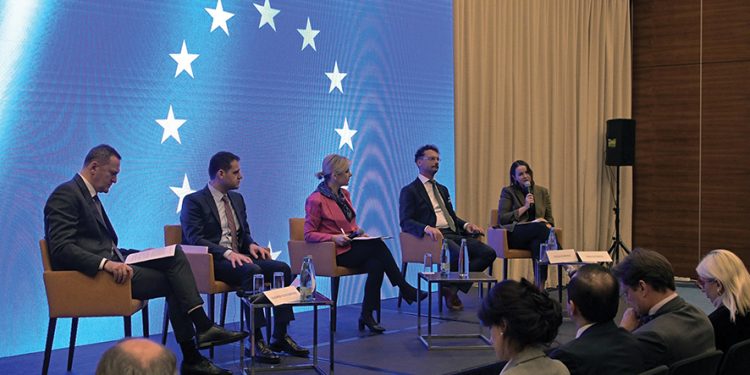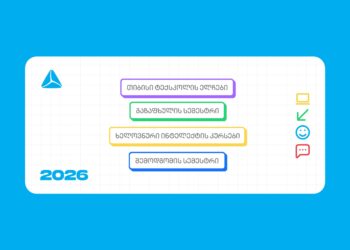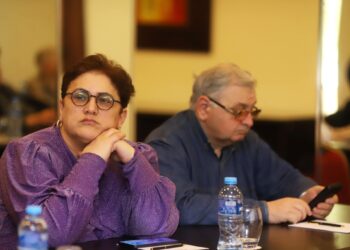The European Union-funded EU4Environment program, with technical support of the United Nations Industrial Development Organization (UNIDO), hosted the national conference on Resource Efficient and Cleaner Production (RECP) in Georgia at Biltmore Hotel.
This year’s event marked an important milestone in the Action’s activities dedicated to Circular Economy (CE) and New Growth Opportunities in the country. It served as a platform to communicate results, discuss challenges and opportunities, and engage national and international partners on how resource efficiency can guide Georgian businesses toward success.
“The Government of Georgia recognizes the opportunities of the green economy and its potential for sustainable economic growth, especially in terms of job creation and poverty reduction,” said Romeo Mikautadze, Deputy Minister of Economy and Sustainable Development of Georgia. “As small- and medium-sized enterprises (SMEs) represent 99.7% of Georgian enterprises, to integrate the principles of sustainable development into the production processes, it is especially important to involve SMEs, as they are much more vulnerable in the face of changes, and flexible to make their products more energy, socially, and resource efficient, and of course ‘green’.
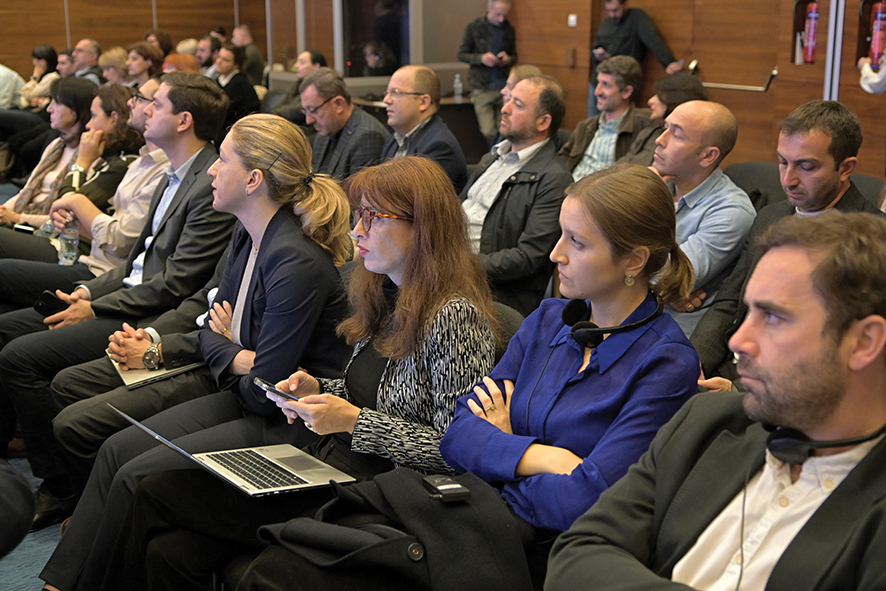
“SMEs are definitely becoming central in the green and CE policymaking within various government institutions and national strategic documents and legal frameworks increasingly provide incentives for green actions within SMEs.”
Between 2020-2023, within the EU-funded EU4Environment program, with the technical assistance of UNIDO, eleven professionals and 44 companies were assessed and trained (17 RECP Clubs members and 27 Demonstration Companies) using the RECP methodology. Overall, 115 RECP measures were recommended, which could potentially yield annual savings worth 2,173,268 EUR. So far, 26 RECP measures have been implemented, expecting savings of 557,650 EUR per year.
“We are happy to learn that due to the regional EU4Environment program, SMEs are embracing RECP,” said Catalin Gherman, Deputy Head of Cooperation of the Delegation of the European Union to Georgia. “EU4Environment is part of the EU’s efforts to open new opportunities for people and the economy due to twin green and digital transitions. A greener industrial sector is crucial for the development and resilience of our economies and societies. Given that Georgia has a clear European perspective, it is important to align with the European Green Deal.”
Gathering over 100 participants in a hybrid format, the event centered around Georgia’s SMEs through six specialized sessions. The stakeholders discussed practical means to base Georgia’s growth agenda on the CE, assessed the country’s integration of CE practices in the past decade, and rejuvenated the policy and regulatory framework for green growth. In addition, international experiences from EU4Business and others, paired with the national experiences on resource efficiency, value chains, and regulatory frameworks, were the catalyst for the increasingly urgent conversation on green skills and how to direct investment towards efficient use of resources in the country.
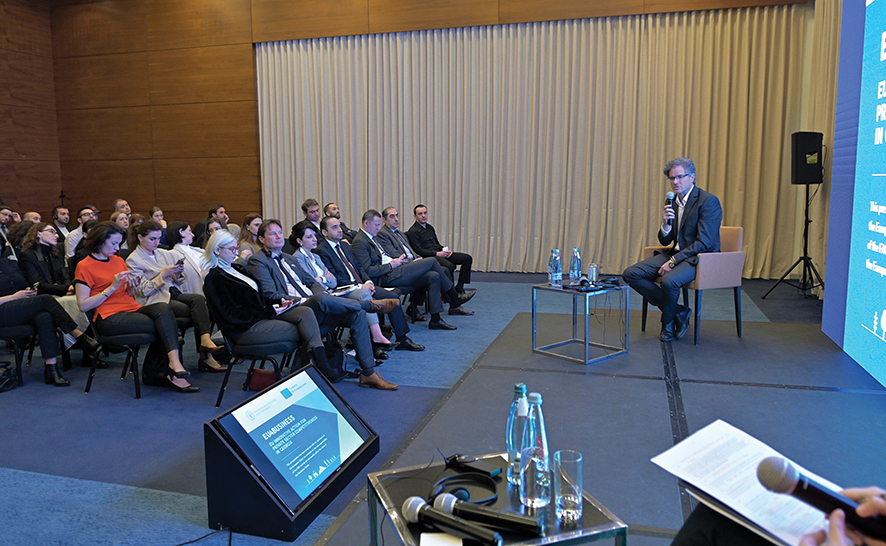
“Georgia has been making significant progress toward the establishment of the CE in recent years,” said Solomon Pavliashvili Deputy Minister of Environmental Protection and Agriculture. “The Assessment of the Circularity Level of the Georgian Economy policy document, which was created with the assistance of the Swedish Government, identifies 14 key economic sectors with the greatest potential for waste recycling, and defines the circularity goals and target indicators suggested for the national CE policy. The document also identifies sectoral opportunities and develops policy options and recommendations. This provides the framework for the next phase, which entails elaboration of the national CE roadmap that will determine the pathway for Georgia to a circular transformation. In addition, it will also be the basis for the development of the CE strategy.”
In the past decade, the EU, with the technical assistance of UNIDO, has built the capacity of Georgian SMEs through the RECP Demonstration Projects and via pilot exercises on Industrial Waste Mapping (IWM) and Product Environmental Footprint (PEF).
An IWM pilot exercise was carried out in the regions of Rustavi and Zestaponi, involving 723 enterprises employing 7,000 workers. The PEF pilot trained 33 experts and initiated an in-depth exercise for five companies to assess selected products. This work will contribute to promoting the potential benefits of the PEF methodology for Georgian enterprises interested in the EU Single Market for Green Products. It will also assist Georgia on its path to EU membership, which requires harmonization of the country’s legal system with the EU acquis.
“Resource efficiency is an essential component of CE and part of UNIDO’s mandate to accelerate and promote inclusive and sustainable industrial development, a key contributor to SDG 9,” said Tatiana Chernyavskaya, EU4Environment Project Manager, UNIDO. “Promoting circularity, we supported businesses in reconsidering their production processes in such a way that waste is prevented, reduced, and reused as much as possible. In addition, (limited) natural resources are efficiently considered, giving Georgian enterprises the edge to increase productivity and competitiveness through innovation.”
Background
The EU-funded “European Union for Environment” (EU4Environment) program aims to help the EU’s Eastern Partnership countries preserve their natural capital and increase people’s environmental well-being by supporting environment-related action, demonstrating and unlocking opportunities for greener growth, and setting mechanisms to manage environmental risks and impacts better. The Action’s implementation period is 2019-2024. For more details, please visit: www.eu4environment.org For more information about RECP in Georgia, please visit: www.recp.ge

